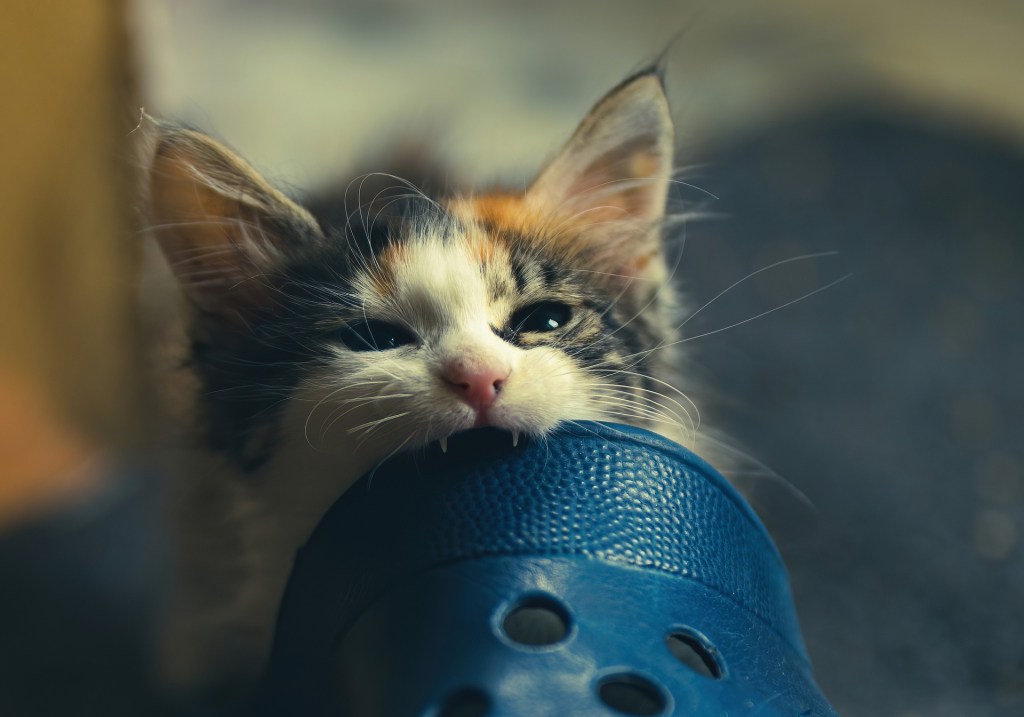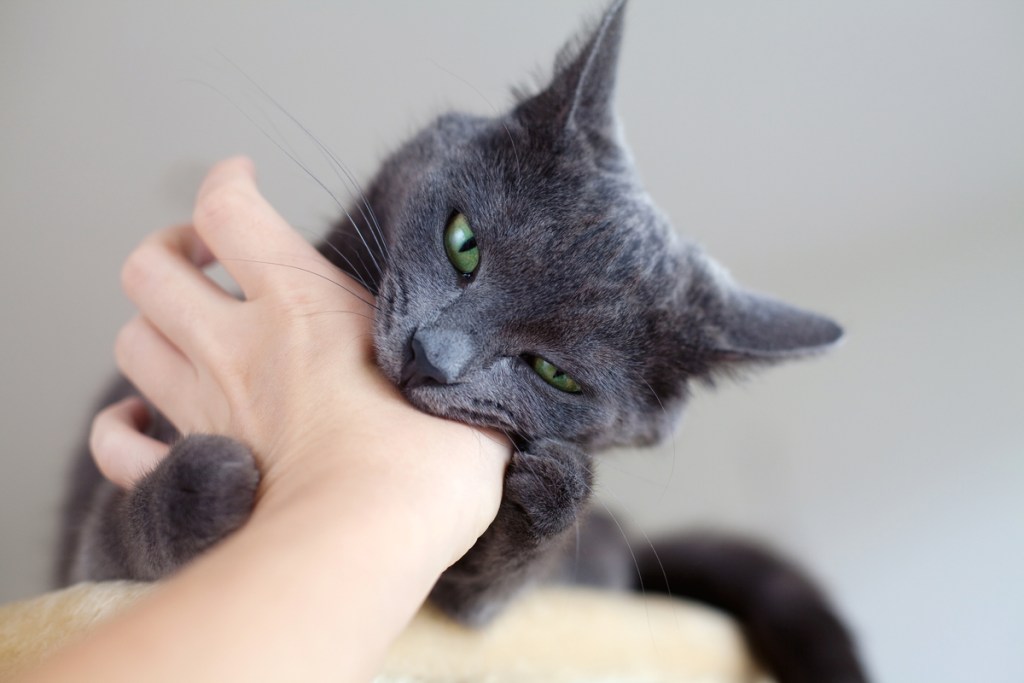When you have a cat in your home, chances are you spend plenty of time patting him and interacting with him. These interactions are usually peaceful and enjoyable for you both. It might surprise you, then, if your cat ever bites you. A bite can be unexpected and seem unprompted, but there are many reasons why your cat might bite you.
If you’re wondering, “Why did my cat bite me?” there are a few things that might be going on. It’s important to never get mad at your cat or use negative reinforcement. You need to get to the root of the problem, find a solution that prevents your cat from repeating this behavior, and tend to the wound quickly.

Why did my cat bite me?
According to PetMD, cats bite for a variety of reasons. Cats are natural predators, and when they’re able to pounce on and bite something, they feel like they’ve killed it, and feel happy as a result. Movements you make (like walking past your cat or reaching out to pat him) could mimic prey, and your cat might just be following his instincts.
Sometimes, cats learn to bite when they are kittens. Allowing kittens to nip at your hands might be cute and not hurt that much while they’re young, but it can cause problems as they grow up. Kittens who have learned that this behavior is acceptable may continue it as adult cats, which can be painful for you.
Pain may also cause cats to bite. Your cat might be concealing his pain so well that you’re not aware of it, but when you pick him up or touch him you might trigger that pain. Your cat’s biting is a defense — he’s trying to stop that pain that you’ve caused.
It’s also possible that your cat is frustrated and feeling aggressive toward something else, but taking it out on you. That aggression might be caused by a new pet in the household or some other source of stress.
How to stop your cat from biting
To stop your cat from biting, PetMD recommends starting with a trip to the vet to rule out pain.
Next, make sure that you’re playing with your cat daily to satisfy his natural predatory instincts. If your cat tries to bite you during playtime, turn around and walk away. You’ll be establishing an important boundary and teaching your cat that if he bites you, the activity he enjoys stops.
You can also learn to read your cat’s body language to better understand if he’s overstimulated or agitated. Look for signs like pinned-back ears, hissing, a flicking tail, and dilated pupils to identify when your cat is bothered. During these times, give your cat plenty of space and wait until he’s calmer before you approach him.

What to do if your cat bites you
According to VCA Hospitals, cat bites can be dangerous because of the bacteria that cats carry in their mouths. That bacteria can cause bite wounds to easily become infected, and those infections can possibly lead to cellulitis or septicemia, also called blood poisoning.
If you’re bitten, it’s important to wash the bite under running water immediately. You can create a mild salt solution by adding one teaspoon of salt to two cups of water. If the wound is bleeding, apply pressure with a bandage or dressing.
Since cat bites are punctures, the design of the bite can push bacteria into your body. It’s important to see a doctor right away; they will probably prescribe antibiotics to help prevent infection. Your doctor may also recommend a tetanus booster and/or a rabies treatment.
Having your cat up-to-date on his rabies vaccination is particularly important in the case of a bite. If your cat’s vaccination status is up-to-date, then the department of health will likely ask you to quarantine him for 10 to 14 days. If your cat’s vaccine status is out-of-date, then that quarantine period could be longer.
The bottom line on biting
Hopefully, you won’t ever have to deal with a cat bite, but knowing the risks and the right steps to take can help to prevent the issue from becoming too severe. If your cat bites you frequently, then talk to your vet about having your cat evaluated. Your vet might be able to identify a health issue that is causing your cat to bite, or to provide some tips to help you get your cat to stop the behavior. There’s a reason behind your cat’s biting behavior which might take time to identify, but figuring out the cause can help you to get the behavior to stop.
Editors' Recommendations
- Wondering why cats chirp? Fascinating reasons why your cat chirps at birds (and you)
- How to cat-proof your balcony before the unthinkable happens
- There’s a totally normal reason cats throw up after eating grass – here’s why
- When can kittens leave their mom? Don’t separate them too early
- When do kittens’ eyes change colors? The answer is so cool – here’s what to know



